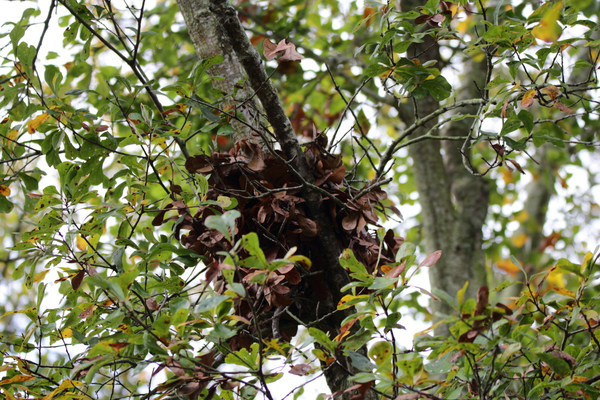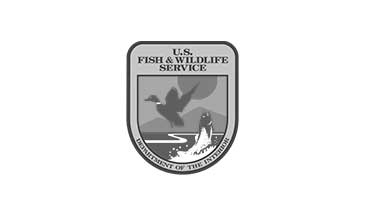Squirrels eat a wide variety of plant, fruit, and vegetable material. They begin hoarding for winter early, so they’re particularly interested in non-perishable foods such as nuts, seeds, and roots. Squirrels adapt their diets based on availability, and will eat insects, meat, and garbage if necessary.
The endless quest for food defines nearly all squirrel behavior. If you ever see a squirrel, it’s safe to assume that squirrel is out looking for food. Food availability determines where they live, how often they mate… and how big a problem they’ll be for you. By learning about what they eat, you can learn how to keep the opportunists from being a problem around your home. Here’s what you should know about what the squirrels near you are eating and why:
What does a squirrel eat?
Squirrels are opportunistic foragers. Basically, that means they aren’t picky. They eat a wide variety of flowers, weeds, shrubs, roots, fungi, nuts, seeds, and fruits. Though they’re primarily considered herbivores, they’ll occasionally hunt small insects and invertebrates. Squirrel’s gathering habits change from spring to fall. Early in the year, they'll feed on sugar and protein-rich food such as fruits, garden vegetables, insects, and eggs. In late summer and fall, they'll begin looking for “non-perishable” food they can store for long periods of time.
Starting in mid to late summer, squirrels begin preparing for winter in earnest. They can’t hibernate, and so having enough food and warmth to survive the cold is a massive undertaking. They start eating more to fatten up for warmth, and begin storing even more food in reserve for winter. Squirrels hide the food they store in multiple “scatter-hoards” around their home territories. They will return to these hordes repeatedly throughout winter whenever they need food.
How do they find food?
Squirrels rely on their highly-developed sense of smell to locate reliable food sources. They can pick up and follow even the minute scents of nuts and seeds. They also use their sense of smell to avoid predators… and steal from other animals! Squirrels can smell the pheromone other animals leave behind and follow them to steal from other hordes. Squirrels steal from each other’s scatter hordes so frequently that some actually create fake scatter hordes just to mislead their competition.
Squirrels need a lot of food to survive the winter, so they’re looking for consistent, plentiful sources. When a squirrel finds reliable food sources such as seed-bearing trees or berry bushes, they’ll return to those sources constantly. Squirrels also prefer to find food as close to their nests as possible. Most establish a home nest and then scavenge for food in the area immediately surrounding it. Their sense of smell makes finding food possible even in the dead of winter.

Where do they live?
All squirrels build dens, but where they build dens depends on the species. A Tree squirrel like the common grey squirrel (Scuiurus carolinensis) build nests or “drays” by weaving together twigs and leaves along tree branches. A Ground squirrel like the thirteen-lined ground squirrel (Ictidomys tridecemlineatus) digs long, narrow burrows with several side passages underground. Both types tend to build multiple nests near different hordes and food sources. Squirrels alternate between nests depending on where they find the most food.
Squirrels build their nests in sheltered areas near food sources. A tree squirrel will choose heavily-forested areas where the canopy can conceal its drey. A ground squirrel frequently digs their burrow in an area with tall grasses or brush to conceal their burrow’s entrances. A squirrel’s den provides the relative “center” of that squirrel’s foraging territory. They will also raise their offspring in these nests. Squirrels typically mate twice a year, from December to February and June to August.
Why are they near my home?
If you see squirrels around your yard, they’re always looking for something to eat. They're particularly attracted to plentiful, consistent food sources. If you have seed-bearing trees, berry bushes, or garden vegetables or flowers, then you’ll encounter more than usual. It’s also possible they've built nests near or even on your property. Look for dreys in nearby trees or evidence of burrowing near trees or your deck.
Squirrels adapt their diets to the food that’s available. They will get into your garbage regularly if they can access it. The best way to keep them away is to restrict their access to food sources and shelter. Fence off your garden and the underside of your porch with underground mesh. Keep your grass mowed short and remove fallen seeds and nuts regularly. Tie your garbage dumpsters, bins, and cans closed whenever you aren’t using them.
Squirrels aren’t dangerous, but they can be annoying. If too many squirrels take up residence near your home, they could make a mess or damage your roofing. Squirrels tend to be tough to remove yourself once they take up residence. After all, they’ll eat anything. Luckily, you don’t have to remove them alone.
If you have a squirrel problem, give Varment Guard a call any time. We will humanely, effectively remove the wildlife on your property and disincentivize them from returning. We make sure the squirrels know they’re better off going elsewhere and won’t bother you anymore.






